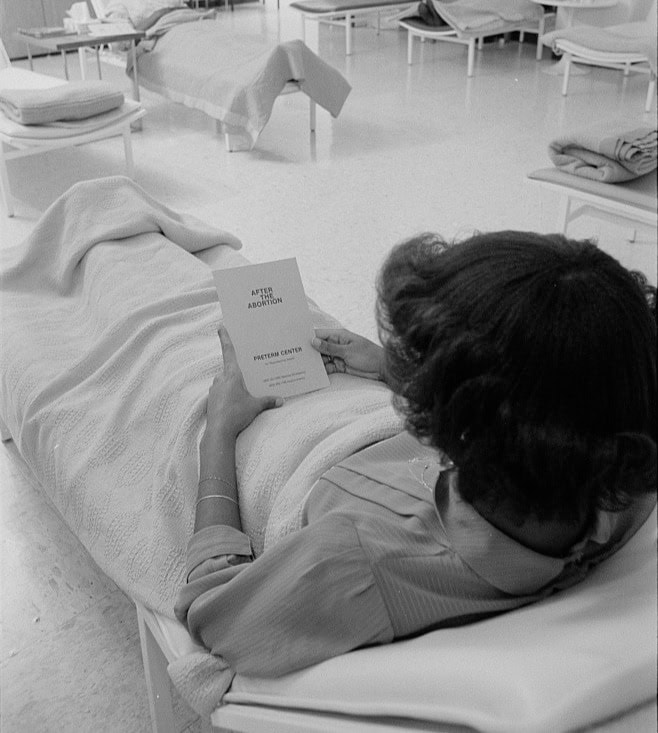My title could as well be “The Job of Reviewing.” For a large part of the professional duty of academics and other scholars is to review their colleagues’ books, articles, and other written productions, such as proposals and projects. The job has to be done time and time again, whether in regard to hiring decisions, promotion and tenure cases, refereeing journal articles, judging manuscripts for book publishers, or formal reviews in either disciplinary journals or general interest publications, not to mention grant proposals. It may occupy more space in a given scholar’s c.v. than the list of his or her own publications.
The task is of the utmost importance. Careers, reputations, positions, salaries—all these and more are likely to be at stake. A review can make or break a book, play, or musical composition. A publisher’s rejection or acceptance of a manuscript, based on a reader’s report, has made and unmade lives and certainly the author’s sense of self-esteem.
Yet, what is striking is how little training or even attention is given to this job. In academia there are no seminars in writing professional reviews. Freelance reviewers pick up their craft by hit-and-miss methods. Journalists are frequently assigned to reviewing in the same way that they might be told to cover sports stories, without either special talent or training. Reviewing is regarded as a democratic practice: anybody can do it. One need only pick up an issue of a major Sunday newspaper book section to see how novelists are assigned to review nonfiction works, and journalists to review scholarly books.
In fact, there is an art to reviewing—hence my title—that requires adherence to certain rules and obligations, and that can be taught as part of the job. For the purposes that follow, I shall restrict myself to books and, indeed, to scholarly books (leaving aside all the other kinds of creative production calling for evaluation). I shall first set forth a general observation and then move to specific injunctions.
The general observation can be put forth as follows: A book reviews the reviewer as much as the reviewer reviews the book. A book that is based on detailed empirical work and a familiarity with ongoing debates about the subject calls for a reviewer who is acquainted with the debates and can judge the adequacy of the scholarship; thus, reviewers themselves are on trial in this regard. Similarly, a book breaking new ground, using a wide range of data and theories, and offering novel conclusions or conclusions reached in a novel way demands reviewers who are not constricted or muddleheaded in their understanding; again, the reviewers stand before the bar of the book itself.
The reviewer must be conscious at all times of his or her own limitations. A certain humility is called for, when one realizes that one is being judged as much as judging. (Indeed, in an ideal reviewing world, every review would be accompanied by a review of the review; one would be enough, for there is no need for an infinite regress—though, in some sense, that is what scholarship is about.) A really original contribution, almost by definition, promises to go beyond the reviewer’s initial competence and constitutes a learning experience for him or her.
In defending his Zarathustra, Nietzsche said, “Ultimately, nobody can get more out of things, including books, than he already knows. For what one lacks access to from experience one will have no ear.” I am more optimistic than the great philosophic seer, however. A book can also teach one what one does not already know, if approached in the right spirit. It can expand one’s experience, while also drawing upon it. Is that not what Shakespeare, Dante, and the other greats do, as well as lesser oracles?
The very word “review,” both as noun and verb, tells us what we should be doing. As the Latin root indicates, to review means to see again. This derivation echoes Nietzsche’s view, where we have already seen what is in the book. But the term also carries with it the notions of criticism and appraisal. I am asserting that the term also requires us to review ourselves, and thus the way in which we carry out a review of someone else’s work. My view of the subject, then, accords with our increasing awareness that the reach for “objectivity,” as an ideal, requires an increased knowing of ourselves as well as the object under examination.
Moving from this general principle, what might be taught in a graduate seminar? The rules, in fact, are simple. The first requirement is actually to read the book. That means reading it carefully, not simply skimming it. Probably everyone who has ever published a book has been horrified to read a review of it in which the reviewer ignores what has been said. Often, the exact obverse of what the book says is claimed for it in the review. Other evidences of the reviewer not having read the book carefully are errors of fact or nomenclature that fly in the face of the book’s own assertions: for example, a reviewer identifying the French physician, La Mettrie, as Prussian because he died in the realm of Frederick the Great, despite the book’s flat statement concerning his nationality.
An author may have spent decades researching and writing a book. For a reviewer not to spend a small number of hours reading it carefully seems morally willful. A reviewer not prepared to put in the requisite time should decline the assignment. What seems like a simple moral and professional imperative should not have to be declared anew. Yet, the injunction to read the book carefully is of primary importance, needing frequent repetition.
The next injunction is that the reviewer state, more or less up front, what the book’s author sees as his or her task. How frequently does a reviewer ignore the author’s intentions and tell readers how he or she would have written the book! The latter tack is a permissible part of book reviewing, but should only come after giving the book’s author a fair break in his/her terms first. In that fashion, readers can tell whether they wish to read the book for themselves.
As part of the description of the authors’ intentions, we need also to be informed, as neutrally as possible, how authors carry out the task. How do they organize their material? What resources do they bring to their exposition? How do they structure their materials? How do they write? There are a host of such questions that a questing reader of a review might like to have answered, as a guide to whether she or he wishes to read the book.
At this point, or somewhere else in the review, it is perfectly fair for the reviewers to declare their own parti pris. If they have a self-interest in the reviewing situation, this should be made clear. For example, a reviewer whose work has been dismissively mentioned in the book should confess this fact. The readers can then make their own judgment of how this might figure in the review. A reader might also ask why this particular reviewer was chosen.
Closely connected to this point is the opportunity for reviewers to declare openly their own favored approach. This is where the temptation to write a different book from that of the actual author can and should be actively engaged, acknowledged, and dealt with. At least then, the review’s readers can compare the different approaches, if such they are, in a state of reasonable knowledge.
Another need in a reviewer is to tell readers how well or badly the author carried out the task, as defined in the author’s own terms. The reviewer should do this even when he or she disagrees more or less completely with what the author set out to do. This is a form of impartial judgment, and as long as the judge has indicated his or her own involvement in the case, it is a legitimate part of reviewing.
In the end the reviewer has the right, and the duty, to stand back and evaluate the particular approach and execution adapted by the book’s author. As long as the author receives a fair hearing the reviewer can be sharp or benign, highly critical or laudatory. By now, the reader of the review has had a fair chance to review the reviewer as well as the book under review.
The rules, as given above, are simple and obvious. Set forth in rather dry terms, they are not intended to be a straitjacket, but merely a template for how reviews ought to be written. They offer an ideal of sorts, to be realized in a variety of different ways. Reviewing is an art, a creative endeavor in its own right, but one that has serious obligations to the other “artist,” the author of the book one is reviewing. (And here I would add or substitute for book, the article, the proposal, or the other manifold written forms confronting a reviewer.)
In practice, the set of rules suggested above must be tempered to the requirements of a particular review. A short review—say, 800 words—is often far more difficult to write than a longer one. In a short compass, some of the rules must be given short shrift. Yet, it will help if the general spirit behind the rules hovers over the particular review. In a longer review, and especially in that delightful assignment, the review-essay, justice can be done to the ideal.
How might one go about teaching the art of reviewing in a seminar? As I have suggested, all graduate programs in the humanities as well as in the social and natural sciences should have at least one such seminar as a requirement, to be fulfilled during the course of the student’s PhD work. Different instructors will design creative assignments. Some possibilities are reading a given book and comparing each student’s review to others in the class as well as to the ideal; reading great and bad reviews and trying to identify which is which, and why; or having each student write a review of a review—imagining an ideal world in which the second review would be printed along with the first—and having that review reviewed by one’s peers. The teacher can take any path, as long as it leads to the Rome of recognizing that the book reviews the reviewer as much as the reviewer reviews the book.
No conclusion would be worth much that did not at least touch on the real world of reviewing. Professional journals like the American Historical Review, the American Journal of Political Science, the American Sociological Review, and others like them, expect their reviewers to carry out their tasks by adhering to the template outlined above as much as possible. All that is needed in this regard is that students be trained in graduate school and not “on the job,” at an author’s expense, in doing the job properly.
In contrast, general interest periodicals ranging from the New York Review of Books to the New York Times and Washington Post book review sections often fail in these tasks. The New York Review too often offers learned and often thoughtful expositions of the reviewer’s own thinking on a particular topic, masquerading as a review of some book. In contrast, the book review sections of major newspapers are beset by an erratic choice of reviewers, ill-informed and sometimes slanted reviews, and a dumbed-down selection of books to be reviewed.
Any author, of course, is lucky to have his book reviewed, no matter how badly or well, in these publications, because of their influence. As P.T. Barnum said, “it doesn’t matter what they say as long as they spell my name correctly” (or words to that effect). It is well to remember that while about 40,000 or more books are published each year, only around 400 or so are reviewed in the Times. Yet it is a shame that with such power comes so little responsibility. Here if anywhere, however, the rules of reviewing need to be taken more seriously. Not only graduate students, but the editorial staffs of the book review sections, should also be required to take the suggested seminar.
More frequent will be the reviewing assignments in regard to scholarly journals, promotion and tenure cases, and proposals handed in to publishers or granting agencies. Here, a more select audience is involved, more focused and more professional. The reviewer, in turn, is required to be more professional. Adherence to the rules given earlier is both more feasible and more requisite. “Review not irresponsibly, lest one be so reviewed in turn” should be the motto. For in the end, we review not only a book or a proposal, but ourselves. Our responsibility is, therefore, a double one. To carry it out, both for those whom we review and for ourselves, we need all the training we can get, as early in our professional careers as possible, in the practice of our job and of the art of reviewing.
Bruce Mazlish is professor of history at MIT. He is the author of numerous books, of which the most recent is Uncertain Sciences (New Haven, Conn.: Yale University Press, 1998).
This work is licensed under a Creative Commons Attribution-NonCommercial-NoDerivatives 4.0 International License. Attribution must provide author name, article title, Perspectives on History, date of publication, and a link to this page. This license applies only to the article, not to text or images used here by permission.


